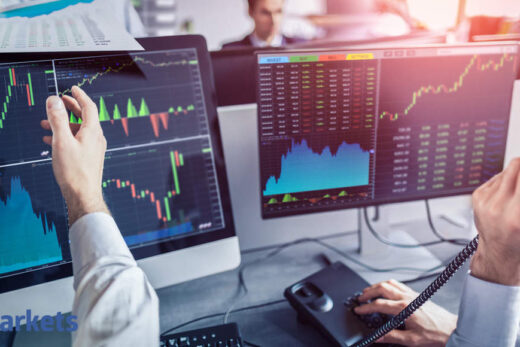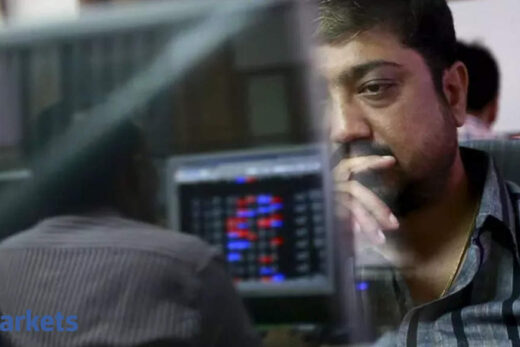How are you viewing the current Covid situation? It puts a spanner in the works when it comes to the kind of outlook that many had already built in for the year?
Absolutely. The Covid resurgence in India is the biggest surprise of this year. It is on the front pages of all the important financial newspapers of the world. What I watch very closely is the daily new cases in Maharashtra and Mumbai. Maharashtra looks like it is starting to plateau. Mumbai yesterday had 7,700 new cases, which was the lowest since March 30. I know these are not reflective of every case out there and are only the confirmed cases. So who knows what the real numbers are! But if it is indicative of some kind of a trend and we know the second wave started in Maharashtra, then we can hope that the rest of the country should see a similar plateau and then decline in the next three or so weeks.
If that is the case, then rather than looking at a calamitous situation for the economy, we would be looking at pent up demand coming back in the remaining three quarters of the fiscal year and probably that explains why the market is not down as much as one would have thought, given the tragedy of the situation.
Would you be in a wait-and-watch mode for the moment?
I like to think that we are a little bit more proactive than that, but it is such a difficult thing to know how to forecast. You might recall Europe had a second wave in countries like France and Germany and they had to do new lockdowns. Actually their markets are up this year. It is a difficult thing because we are dealing with a terrible tragedy but we also need to be cognisant of the fact that the market is a cold and unemotional creature and it is really just thinking about whether there is going to be a lockdown or not? That is why I say I am hopeful that Mumbai can be extrapolated to a larger nationwide trend. The other thing is that there are a few sectors like IT, pharma and materials, which have actually risen since the second wave started. Those have softened the blow for the overall Sensex index.
The other worrisome fact is that the Indian rupee has weakened as opposed to other currencies and especially the dollar. Is that also weighing heavily on the India sentiment when it comes to the FII money pouring in?
Yes, the one potential weakness for the market is that a lot of foreign money came into India over the last 12 months and frankly not very much has left yet. I am a little surprised actually but I guess other people are taking a similar view that rather than pushing the panic button, just stay invested because it could be over within a month or at least enough signs are there to show us that the second wave is rolling over and we may not need to wait a month, may be much less than that. I think that there would not be any nationwide lockdown and especially with the acceleration in vaccination, a comeback in investment and consumption.
Where does your sectoral preference lie? Of late, the market seems to be getting back its defensive tilt. IT and pharma, that rose maximum at the start of the pandemic last year, are back in favour. Is this a temporary aberration or could this trend last for a while?
We could have a big come back in the more cyclical sectors like financials on any prospect of a plateau in new confirmed cases. I would not want to get too defensive within the broader market and probably the best way is just to be equally represented in both defensive and cyclical sectors at this point.
Where are you hunting for opportunity? What do you believe could do well once we see a recovery? Would it be in insurers, NBFCs, pure play marquee private banks or PSUs?
I look at PSUs as the short-term beneficiary of a recovery. The longer term beneficiary in the financial space is the private banks because I do believe that there will be recapitalisation of the PSU balance sheets with the formation of a bad bank under the auspices of the Ministry of Finance. I also think that over the next few years there will be a slow but steady migration of deposits from PSU banks to private banks simply because they are better run and on that basis alone should attract funds.
So in the longer term I will still be a buyer of the private banks.
What about the consumption plays? How are you approaching the consumption basket and particularly the FMCG stocks?
It is an expensive sector and not really one of my favourites. I am sorry it sounds like a bit of a cop-out but rather than trying to pick sectors, I would rather just be invested because it is difficult to determine the trajectory of things as much as I am hopeful. Mumbai has been giving us some kind of leading indicator quality. I could be 100% wrong in which case you still want to be in pharma and IT, etc. So then again, if it is one hopes for a leading indicator, then we want to own the consumers and the financials. I do not know the answer but I do know that I want to stay invested. I would own everything. I would just own the Sensex basically.
China is back on track with the economic recovery looking really strong. There is going to be a little bit of a question mark on India now. The US is seeing strong data coming out so recovery seems to be back on track there as well. In terms of the overall global economic recovery, are you optimistic about the following few months?
It is a mixed bag but strange as it sounds, there is really no relationship between economic growth and the economy on a year-on-year basis. I suppose over the long term there is a relationship. Just look at last year. It had to be one of the worst years for the world economy. Yet look at what the stock market did. Just because growth is going to be very strong this year, does not guarantee good stock market returns because we already priced a lot of this year’s recovery into the market last year. But yes, growth is going to be looking super in America for the next two quarters and then it will start to drop off simply because there will be a base effect and also because a lot of this growth in America is being driven by Joe Biden’s America rescue plan and that will reach a peak in the second quarter.
The plans that he has coming up are the family plan and the jobs plan which will be financed by higher taxes and will be spread out over eight to ten years. So, the magnitude of their impact on the economy will be much smaller. China has come out with very strong growth this year but they are taking some of the liquidity back that they provided last year because the epidemic started their first. I like China because they have been taking this money out of the market. It is one of the few markets that is down so far this year among the major markets in the world and I think their technology giants like Alibaba and Tencent are looking very attractive now because they were also faced with a big wave of regulation which hit them in December, January, February and March. I think it is starting to fade away and they are trading at about 20 times growth over the next few years. My favourite stocks in Asia right now are the Chinese technology giants.
We do not really know US-China relations are going to evolve under the new presidency and even relationships with India. While the US has pledged support right now in difficult times, but in terms of economy or trade we are still waiting to see how those parameters shape up. Do you see any risk on that front?
The geopolitics has clearly become worse over the last few years and yet the markets do not really seem to mind that much. So I do not precisely know what that means but at least as far as the relation between the US and China goes, it is what people call a decoupling or a bipolarisation where there are two blocks.
The block we are already aware of is the American consensus on the way the world is working now and that has largely been the case since World War II. . But then there is this emerging block — the China block. A lot of growth is coming from China. It is a big economy but its per capita GDP is still one-sixth of what it is in America. The average Chinese person does not have a very high income. So there is the potential to grow a lot there just like there is in India. We see China as a very viable economy with lots of investment opportunities within it.
So long there is not a war, China is a very investible place and will continue to be that. The problem with the wars is that markets do not really factor them in until they start. I do not think there is going to be one and certainly hope there is not going to be one. As long as there is no war, then I do not think geopolitics is going to drag down valuations in either China or the US.



